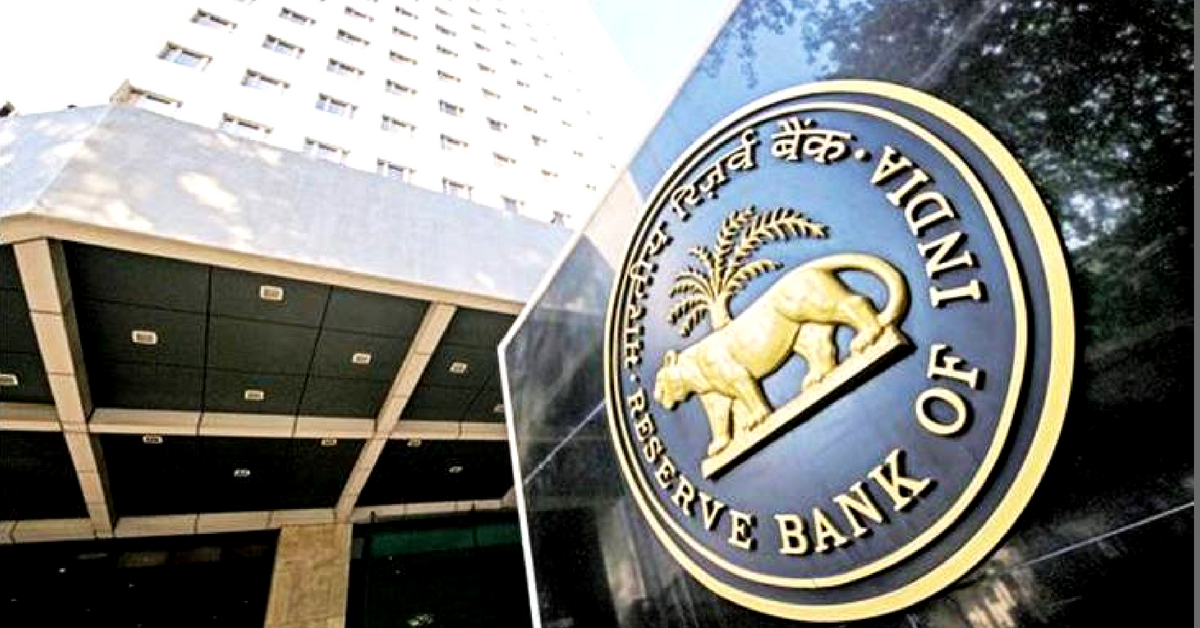Sudha Balakrishnan Appointed as RBI’s First Ever CFO: Here’s Why It’s A Big Deal
A chartered accountant by profession, Balakrishnan was till recently a vice-president with National Securities Depository Ltd.

In a significant development, the Reserve Bank of India (RBI) appointed Sudha Balakrishnan as its first ever Chief Financial Officer (CFO) effective from May 15, according to the Economic Times. This is reportedly one of the most significant organisational changes the central bank has instituted in recent times.
A chartered accountant by trade, Balakrishnan was until very recently the vice president of India’s oldest and largest depository, the National Securities Depository Ltd (NSDL). At the RBI, she will get a three-year term and a monthly salary of Rs 2 lakh per month.
Until Sudha’s appointment, the RBI’s books were managed in-house with no dedicated officer assigned to the task. With her appointment, officers at the higher echelons of the RBI will now have time to focus on other essential functions of the bank.
According to the recruitment notice put up by the RBI in October 2017, her responsibilities will entail the following:
1) Accurate and timely presentation and reporting of financial information of the bank.
2) Establish accounting policies and procedures wherever required.
3) Compliance with financial regulations and standards wherever applicable.
4) Communicate both the bank’s expected and actual financial performance.
5) Overseeing the budget process, collecting inputs and comparing the bank’s actual performance vis-à-vis the budget estimates.
6) Flagging risks to the finances—operational, market etc.
and developing strategies to counter/mitigate the same.
More importantly, however, she will oversee the bank’s government and bank account department, which according to Economic Times will entail, “processing government transactions like payments and revenue collections such as taxes.”

Additionally, she will also handle the central bank’s investments (at home and abroad) portfolio and “corporate strategy functions like deciding the provident fund rate.” Finally, she will also lead the process of determining how much dividend the government receives from the RBI, a critical aspect of the Centre’s budgetary process, as stipulated by the RBI Act of 1934.
Also Read: RBI Ends Letters of Undertaking: What Are They And Why You Should Care
It was former RBI Governor Raghuram Rajan, who first mooted the idea of a dedicated officer handling the important in-house financial responsibilities of the central bank. The initial idea, proposed way back in 2014, was to appoint a chief operating officer (COO), at the rank of deputy governor.
The idea was initially shot down by the government. However, once Urjit Patel took over the RBI Governor, the government agreed to appoint a CFO at the rank of director at the position of executive director.
(Edited by Gayatri Mishra)
Like this story? Or have something to share? Write to us: [email protected], or connect with us on Facebook and Twitter.
NEW: Click here to get positive news on WhatsApp!
If you found our stories insightful, informative, or even just enjoyable, we invite you to consider making a voluntary payment to support the work we do at The Better India. Your contribution helps us continue producing quality content that educates, inspires, and drives positive change.
Choose one of the payment options below for your contribution-
By paying for the stories you value, you directly contribute to sustaining our efforts focused on making a difference in the world. Together, let’s ensure that impactful stories continue to be told and shared, enriching lives and communities alike.
Thank you for your support. Here are some frequently asked questions you might find helpful to know why you are contributing?


This story made me
-
97
-
121
-
89
-
167











